Christian community
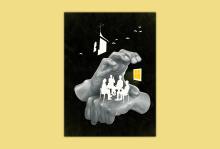
FOR A FEW months last winter, I did something that still feels too rare in my Christian life: I attended a local Bible study group in American Sign Language.
Every month or so, a half-dozen of us gathered in someone’s apartment, caught up over dinner, and then hashed out theology together. We often stayed late into the night.
Unlike other Bible studies, no one spoke. Half of the people there were deaf, the other half were hearing — but everyone knew how to sign. This Bible study in Boston was highly informal. It wasn’t attached to any particular ministry — especially since none of the deaf people there, including me, attended a local church regularly. Sitting together, far removed from any institutional church, we planted the seeds of community.
Each time I drove home, I felt vital glimmers of encouragement. I’d lived in Boston for more than three years and still hadn’t found a church of my own. I only attended Sunday services sporadically. None of this was by choice. Though my faith is important to me, most churches are not accessible to deaf worshippers.
During my time in Boston, I wound up “church-hopping,” attending one service here, another there, depending on when ASL interpreting was available. Denominational preference is a luxury deaf churchgoers don’t have: Over the years, I’ve visited everything from evangelical and nondenominational to Presbyterian, Anglican, Episcopal, and Catholic churches. My years in Boston felt similarly fragmented, even though I learned a lot about how different Christian traditions approach worship.
Even when I found Sunday services to attend, deeper church participation felt impossible for me. Church events are rarely ASL-interpreted, and I’d given up on trying to show up at speaking-and-hearing Bible studies, potlucks, and weekend retreats. (I occasionally went to local church gatherings when my signing hearing friend Tim Loh could “friendterpret.”) I’d grown up in the church, watching my hearing parents attend weeknight church events, then later watching many hearing Christian friends share about their “church families” in adulthood. But I couldn’t figure out how to grasp such a life for myself.
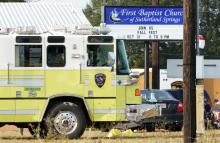
In a small town like Sutherland Springs, everyone will be affected by the shooting, Buford said. Police said the youngest shooting victim was five years old.

It’s safe to say that no Christian community I've been a part of has ever brought up the U.S. domestic crisis of HIV/AIDS. In fact, I can’t recall ever hearing an American Christian even utter the words.
And in conversation with others, I know that too many have only heard about it from pastors who preach that homosexuality is an unforgiveable sin and that HIV/AIDS is God’s wrath at work — despite the fact that HIV/AIDS affects people of many ethnicities and sexual orientations, and that the infection is often transmitted in ways other than sexual intercourse. Hearing Christians speak seriously and nonjudgmentally about HIV/AIDS, with the intent of acting to help eradicate the illness and protect the lives of those whom the illness has affected, is too rare.

My wife and I are attending our denomination's national assembly in Orlando this week. Last night, we went to a retirement party for one of her mentors. As a group of ministers tends to do, they concluded by gathering around, laying their hands on, and offering him a prayer of blessing. Then the group spontaneously broke out into a round of song that went on for a few minutes. It was both beautiful and touching.
The wait staff, however, wasn’t quite sure how to take it.
"Wow," one bartender said," that's amazing. You guys can all really sing."
Amy just smiled.
“That's church," she said.

A few months ago, Stephen Marsh, my fellow pastor, and I walked into Chief’s Tavern on the east side of Madison, Wis., ordered a couple pints, sat on a pair of stools and discussed an idea that would eventually have a massive impact on the congregation we serve together. In specifics, we wondered whether we could spark a ministry by fusing two of our most treasured Lutheran traditions: beers and hymns.
The budding idea, which originated from some creative faith communities in other parts of the country, was to find a local tavern willing to host a monthly one-hour session of hymn-inspired evening fellowship. Within a few minutes of our conversation, we were joined by Brian Mason (owner of Chief’s Tavern), and what followed was a ground-breaking partnership between parish and pub. The first Beers & Hymns event was scheduled, and as the date drew closer, our collective thoughts and prayers moved back and forth between “Thanks be to God” and “Lord, have mercy”!

Repentance has a public aspect and a private aspect. Jesus speaks very clearly about doing one’s repentance in secret -- not chattering on in public about how hungry your pious fasting has left you. At the same time, the church also has a ministry to call -- publicly -- for repentance, to sometimes play the role of John the Baptist. Calls for repentance happen every week, every day, inside religious buildings, inside religious communities. Sometimes calls for repentance need to happen out on the street corners, too.
Still, this is a strange thing to do, this liturgy outside a hospital. It does not feel entirely comfortable to me -- but I am not sure anything about Ash Wednesday ever feels entirely comfortable.

As I have read about the Occupy Movement, I have noticed many individual Christians expressing support, but little public support for the movement from the Christian community as a whole.
I have had mixed feelings about this.
Certainly support of the poor, standing up for social justice, most of what the Occupy Movement is about, coincide with what we are called to as Christian people. Yet I think it would be inappropriate for Christians to try to jump into leadership roles when the Occupy Movement is so diverse and when we have so often failed to take a stand on such issues ourselves.
It seems to me that public confession and repentance might be the best way to communicate our support with appropriate humility.
With this in mind I make the following confession as a person of Christian faith. I hope others will join me in this or similar confessions.

For 40 years, Sojourners has been fighting the good fight. Where do we go from here?
1. What led you to start an intentional community ministering to gang members? Gangs have a really strong sense of community: They fight and die for their homies and they support each other. Other programs offer job skills or anger management, but don’t offer community. We offer a community like the community they have. After many years working with them, we realized that was attractive to them—they feel at home.
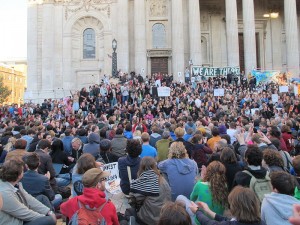
On Sunday (10/30), the Anglican Bishop of London, the Rt. Rev. Dr. Richard Chartres, met with Occupy London protesters who have encamped for several weeks now on the ground of St. Paul's Cathedral in London, in an ongoing attempt to get the demonstrators to leave church grounds.
Chartres wants the Occupiers to vacate cathedral property and stopped short, in an interview with the BBC yesterday, of saying he would oppose their forcible removal. Other British clergy, however, are rallying behind the demonstrators, saying they would physically (and spiritually) surround protesters at St. Paul's with a circle of prayer or "circle of protection."
The earth dries up and withers ... The earth is defiled by its people; they have disobeyed the laws, violated the statutes, and broken the everlasting covenant. - Isaiah 24:4-6
Today I have given you the choice between life and death, between blessings and curses. Now I call on heaven and earth to witness the choice you make. Oh, that you would choose life, so that you and your descendants might live! - Deuteronomy 30:19
During the 1980s, many Christians were at the forefront of a movement to avert nuclear annihilation. They saw this transcendent threat as a moral crisis and felt a responsibility to nonviolently resist, including acts of civil disobedience and divine obedience. Today, we face a comparable danger -- a climate catastrophe which could decimate life on earth. Yet it seems not to have been picked up on the Christian "radar screen" in the same way. For this reason, it is actually more insidious.
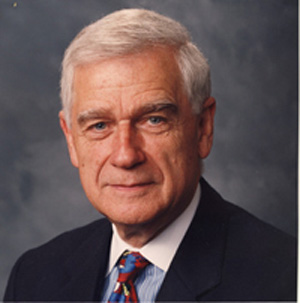 Mark O. Hatfield's political witness shaped a whole generation of students, teachers, pastors, and social activists in the evangelical community and beyond. The voice of Christians today who plead for social justice and peaceful alternatives to war would not have emerged with its strength and clarity in the 1970s without his leadership. His death underscores the vacuum of such spiritually rooted voices uncompromising in their commitments to peace and justice within the cacophony political rhetoric today.
Mark O. Hatfield's political witness shaped a whole generation of students, teachers, pastors, and social activists in the evangelical community and beyond. The voice of Christians today who plead for social justice and peaceful alternatives to war would not have emerged with its strength and clarity in the 1970s without his leadership. His death underscores the vacuum of such spiritually rooted voices uncompromising in their commitments to peace and justice within the cacophony political rhetoric today.
One of my life's greatest privileges and joys was to work as an assistant to Senator Mark O. Hatfield for nearly a decade, from 1968 to 1977. I saw first-hand what courageous leadership, combined with unswerving compassion and civility, looked like within the political life of that turbulent and formative era. Those experiences are shared in my book, Unexpected Destinations (Eerdmans).
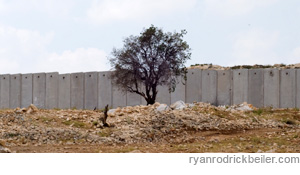 Whenever I give talks on the effects of the Israeli occupation on Palestinian livelihood, the status of nonviolence as a means to resisting the occupation, and how I believe nonviolence is the only way to move forward to resolve the conflict and create a lasting peace between Israelis and Palestinians, one of the first and immediate questions I get from foreign visitors to my office in Bethlehem is, What you said is good, but what about the Muslims? Do they also believe in nonviolence? Do they understand it?" Even if I don't mention religion in my presentation -- and I rarely do -- this question always seems to make its way in our discussions.
Whenever I give talks on the effects of the Israeli occupation on Palestinian livelihood, the status of nonviolence as a means to resisting the occupation, and how I believe nonviolence is the only way to move forward to resolve the conflict and create a lasting peace between Israelis and Palestinians, one of the first and immediate questions I get from foreign visitors to my office in Bethlehem is, What you said is good, but what about the Muslims? Do they also believe in nonviolence? Do they understand it?" Even if I don't mention religion in my presentation -- and I rarely do -- this question always seems to make its way in our discussions.

Koinonia Farm has seen a renewal of community life -- and a new, sustainable approach to the land.
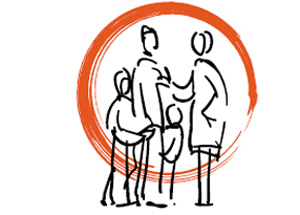 Several weeks ago (right before I left for my sabbatical), I joined with six other pastors from around the country -- in partnership with Sojourners -- to draft an open letter to Congress and President Barack Obama regarding the budget and the proposals to cut certain programs that aid the poor in our country. Our hope was to invite at least 1,000 pastors to join us in signing this document.
Several weeks ago (right before I left for my sabbatical), I joined with six other pastors from around the country -- in partnership with Sojourners -- to draft an open letter to Congress and President Barack Obama regarding the budget and the proposals to cut certain programs that aid the poor in our country. Our hope was to invite at least 1,000 pastors to join us in signing this document.
As of today, we've had nearly 5,000 pastors and Christian leaders from all 50 states join us in signing this open letter, and we hope to keep adding voices and signatures. As a pastor and Christian leader will you add your voice to let our political leaders know that you stand with the poor?
Read the letter below and if you resonate with our message, please sign your name.
This past weekend, Christians around the world celebrated one of our holiest holi-days: Pentecost. Pentecost, which means "50 days," is celebrated seven weeks after Easter (hence the 50), and marks the birthday of the Church, when the Holy Spirit is said to have fallen on the early Christian community like fire from the heavens. (For this reason, lots of Christians wear red and decorate in pyro-colors. This day is also where the fiery Pentecostal movement draws its name).
But what does Pentecost Sunday have to do with just another manic Monday?
What does a religious event a couple of thousand years old have to offer the contemporary, pluralistic, post-Christian world we live in? I'd say a whole lot. Here's why:
Let me start by confessing my bias. Not only am I a Christian, but I am a Christian who likes fire. I went to circus school and became a fire-swallowing, fire-breathing, torch-juggling-pyro-maniac as you'll see here. So naturally, I like Pentecost.
Yesterday, the leaders of more than 50 Christian denominations and organizations drew a line in the sand of the budget debate, and asked our political leaders to do the same.